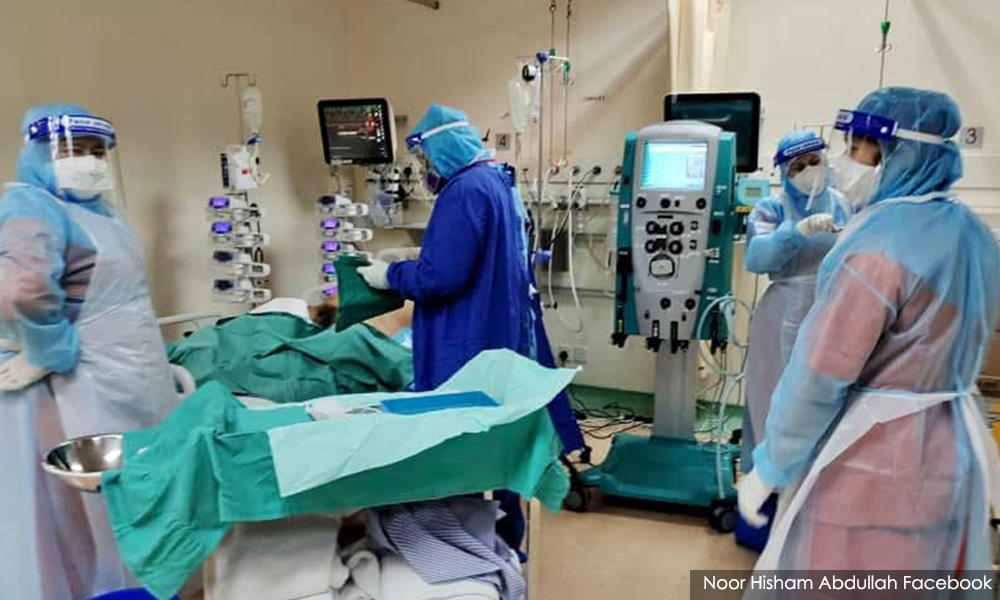PARLIAMENT | The Health Ministry is taking steps to enable more junior doctors to become specialists, retain existing specialists in the public service and attract specialists who have left to return.
Ongoing initiatives included creating more specialist training spots for contract junior doctors and improving financial incentives for specialists, said Deputy Health Minister Dr Noor Azmi Ghazali.
He hoped this would help address the healthcare “brain drain” and move Malaysia closer to obtaining the 28,000 specialists needed by 2030.
There are currently about 13,000 specialists in the country.
Azmi told the Dewan Rakyat this morning that 6,012 of those were in the public service as of June 30.
He also shared that 948 specialists resigned from the public service between 2016 and 2021.
“The government is trying to persuade, promote, acknowledge and improve (conditions) for specialists so they return to (work in) the government to reduce the brain drain.
“And we are making an effort to enable more new doctors to take specialist courses. The situation we have now is that many have left (public service).
“Perhaps it will be shocking for us to say we are realistically targeting 28,000 (specialists by 2030) but what we can do is reduce that gap,” he said when responding to questions by Saifuddin Nasution Ismail (PKR - Kulim Bandar Bharu) and Dr Xavier Jayakumar (Independent - Kuala Langat).
More perks for doctors
Moving forward, Azmi reiterated the ministry was working on allowing contract doctors to apply for federal scholarships to pursue specialist training.
It is also working on absorbing more contract doctors into permanent service by offering them positions at newly built healthcare facilities, recently upgraded facilities, other ministries, government agencies or the private sector.
It is further working on amending laws like the Medical Act 1971, Dental Act 1971, Registration of Pharmacists Act 1951 and the Pensions Act 1980 to change how specialist training is done and how pensions are disbursed.
This is on top of improving financial incentives for existing specialists like on-call allowances, incentives for rural placements, incentives for performing elective surgeries on public holidays and providing opportunities for short specialist training courses abroad.
[More to follow] - Mkini


No comments:
Post a Comment
Note: Only a member of this blog may post a comment.